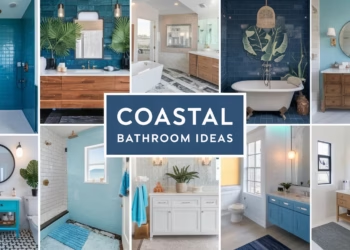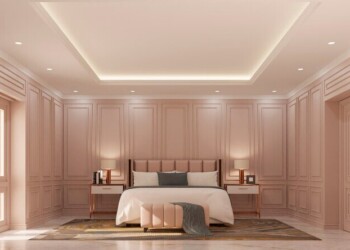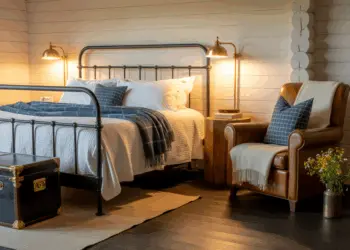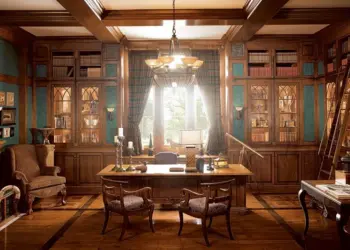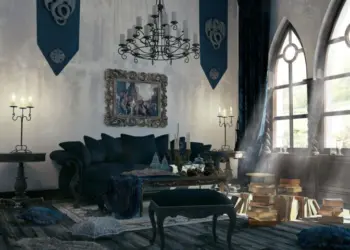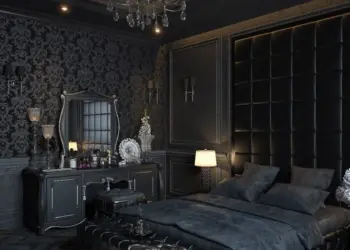Are you torn between the opulence of maximalism and the simplicity of minimalism when it comes to interior design? Both styles offer unique aesthetics and can make a powerful statement about your personal style. In this article, we’ll explore the key differences between maximalism and minimalism (Maximalist vs Minimalist), helping you determine which one resonates with you. Let’s dive into the world of design and discover which style suits your home and lifestyle.
Table of Contents
What Is Maximalism?
Maximalism is a design style that celebrates excess, vibrancy, and boldness. It’s a riot of colors, patterns, textures, and objects. Maximalist interiors are characterized by their eclectic mix of elements, where more is definitely more. Imagine rooms adorned with rich fabrics, intricate wallpapers, ornate furniture, and an abundance of decor items.
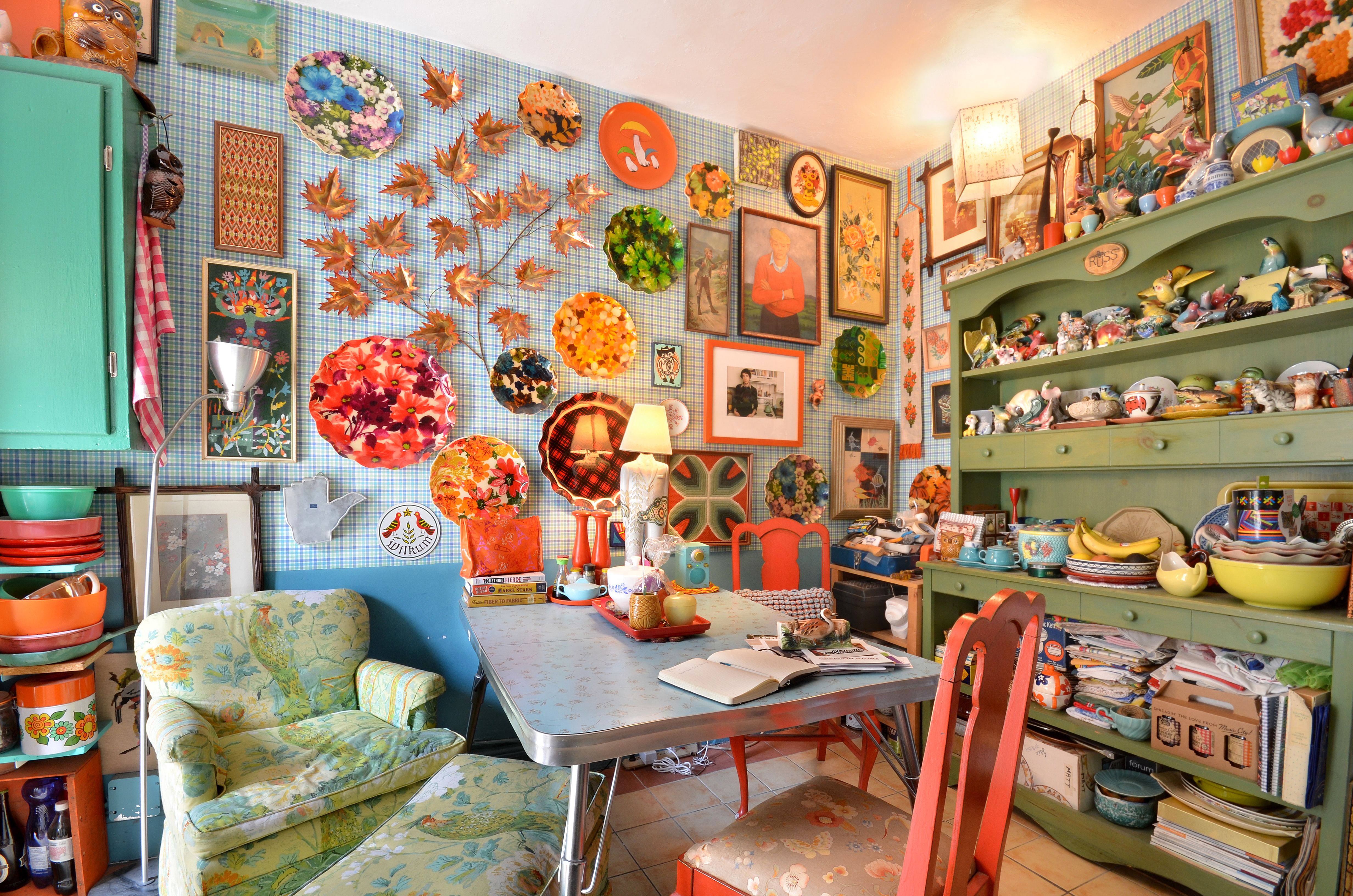
Maximalism: Embrace the Extravagance
Maximalism is all about embracing abundance and celebrating individuality. Here’s why you might want to consider it:
Color Explosion!
- Maximalism isn’t shy when it comes to colors! Think vibrant reds, lush blues, and bold yellows. Your space becomes a canvas for a rich and diverse color palette.
- Create a sense of drama and excitement by incorporating contrasting hues. Why have one color when you can have them all?
Eclectic Mix and Match
- Maximalists love to mix patterns, textures, and styles. It’s like a treasure hunt in your own home!
- Antique furniture can coexist with modern pieces, and no one bats an eye. Embrace the chaos!
Personality Overload
- Every item in a maximalist space tells a story. Your decor becomes a narrative of your life, travels, and passions.
- Display your collections proudly! From vintage vinyl records to quirky souvenirs, there’s room for it all.
Texture Extravaganza
- From plush velvet sofas to rough-hewn wooden tables, maximalism revels in texture.
- Layering textures adds depth and visual interest. Your room becomes a tactile experience!
Statement Pieces Galore
- Maximalist interiors often feature bold statement pieces that steal the show.
- It’s the perfect excuse to showcase that unique, eye-catching art piece you fell in love with!
More is More
- Maximalism isn’t just a design choice; it’s a lifestyle. Embrace the joy of abundance.
- If you’ve ever said, “I need more pillows,” maximalism might be your calling.
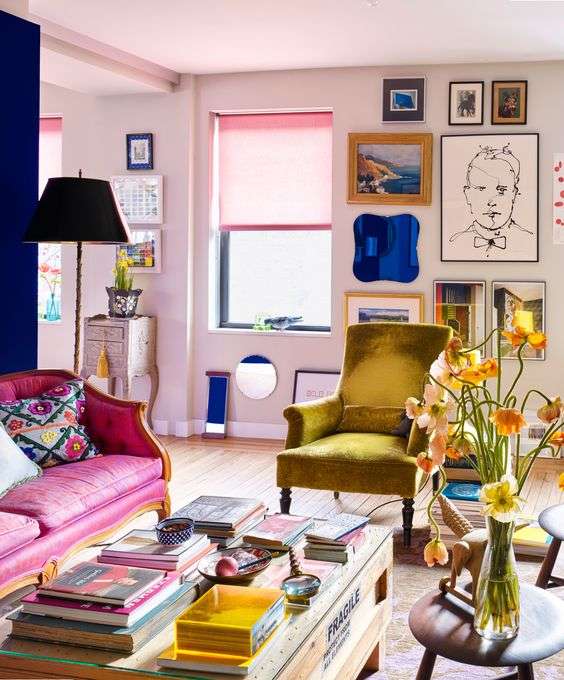
What Is Minimalism?
Minimalism, on the other hand, is all about the “less is more” philosophy. It embraces simplicity, functionality, and a clean, uncluttered look. Minimalist interiors often feature neutral color palettes, sleek lines, and a focus on essential pieces. The aim is to create a sense of calm and serenity through simplicity.
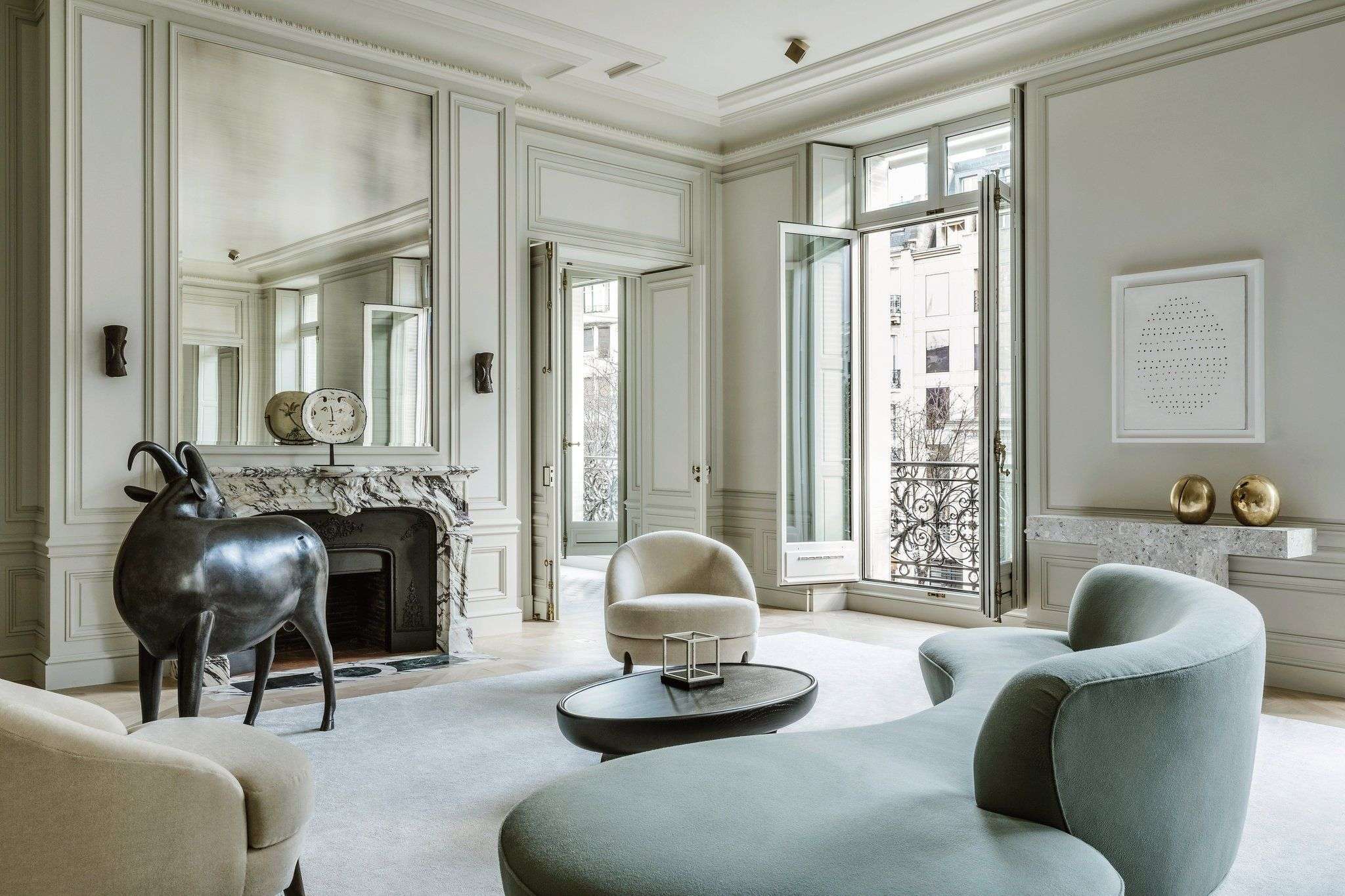
Minimalism: The Art of Less is More
Minimalism, on the other hand, is all about simplicity, functionality, and the age-old adage, “less is more.” If you find beauty in clean lines, neutral color palettes, and clutter-free spaces, you might be a minimalist at heart. Here’s why minimalism might be the choice for you:
Zen-like Simplicity
- Minimalist interiors exude a sense of calm and tranquility. Imagine walking into a serene spa-like retreat every day!
- Fewer distractions mean more mental space to focus on what truly matters to you.
Declutter and Destress
- Minimalism encourages you to declutter your life, both physically and mentally.
- Say goodbye to the stress of searching for lost items in a sea of stuff. Minimalism streamlines your surroundings.
Quality Over Quantity
- Invest in high-quality, timeless pieces that stand the test of time. Minimalism values durability and functionality.
- Minimalist design is not about being cheap; it’s about being intentional with your choices.
Open and Airy
- With fewer furnishings and decorations, your space feels more open and spacious.
- Enjoy the luxury of having room to breathe and move around freely.
Mindful Living
- Minimalism extends beyond decor; it’s a mindset. Focus on what truly adds value to your life.
- It’s an invitation to live intentionally, savoring each moment without distractions.
Easy Maintenance
- Cleaning and maintaining a minimalist space is a breeze. No more dusting a gazillion knick-knacks!
- Spend less time tidying up and more time doing what you love.
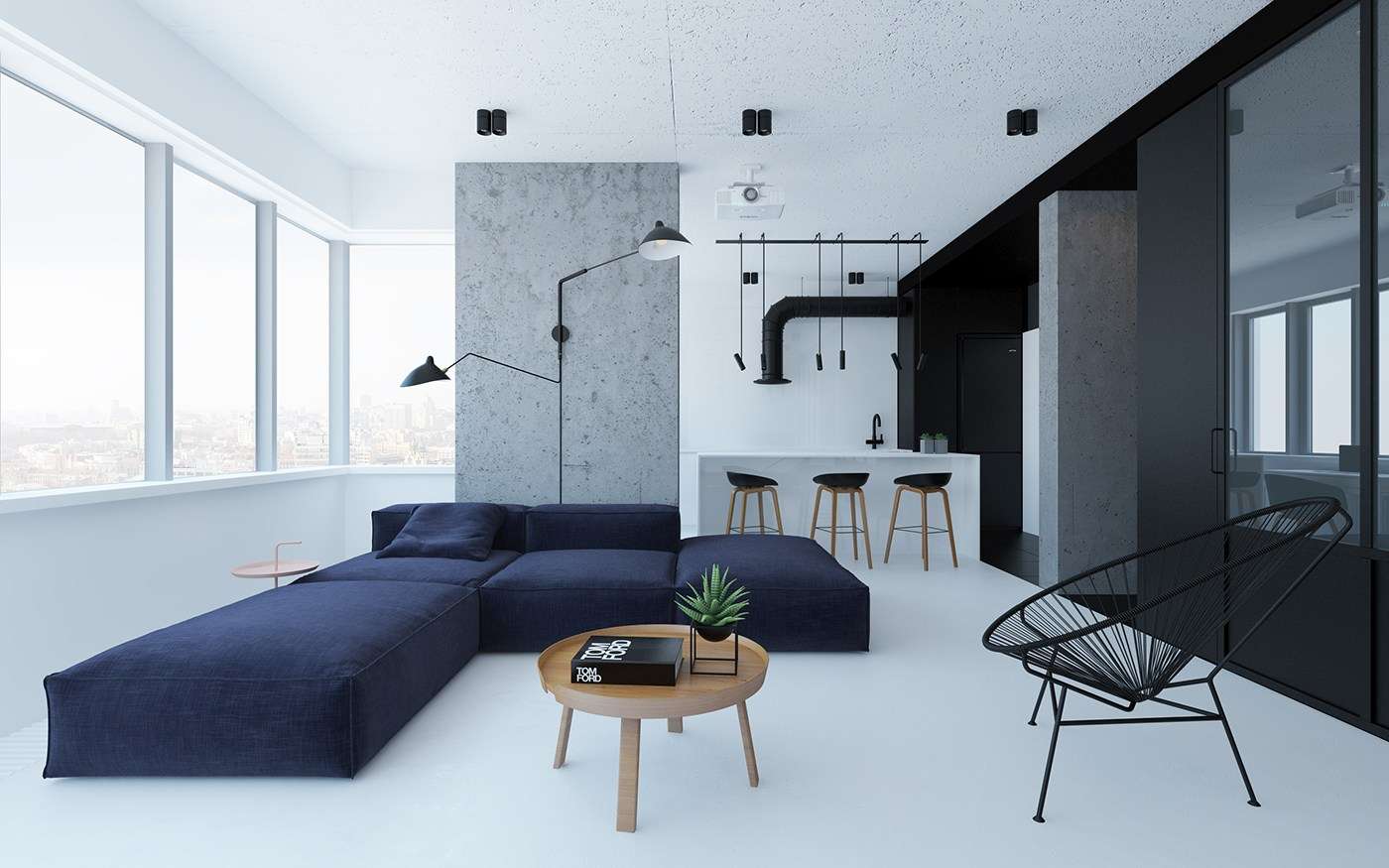
Maximalist vs Minimalist: The Clash of Styles
At first glance, maximalism and minimalism seem worlds apart. Maximalism is exuberant and extravagant, while minimalism is restrained and understated. These styles influence every aspect of interior design, from furniture choices to color schemes and even the use of space.
Maximalist Design Elements:
- Color Explosion: Maximalist spaces are bursting with colors, often featuring vibrant hues like royal blues, deep reds, and gold accents.
- Pattern Play: Bold patterns such as florals, stripes, and geometrics are commonly found on wallpapers, upholstery, and rugs.
- Antiques and Collectibles: Maximalists love to showcase their collections of art, antiques, and unique decor pieces.
- Layered Textures: Plush rugs, velvet sofas, and textured curtains create a sensory-rich environment.
- Statement Furniture: Large, ornate furniture pieces command attention in maximalist interiors.
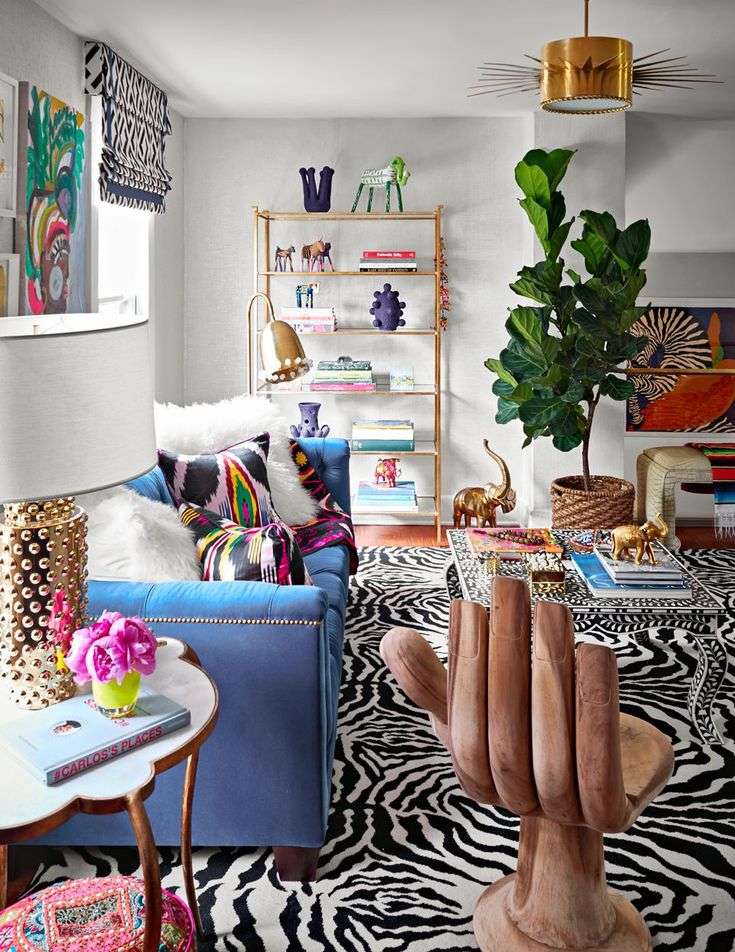
Minimalist Design Elements:
- Neutral Color Palette: Minimalist spaces favor neutral colors like whites, grays, and beige, creating a serene atmosphere.
- Clean Lines: Furniture and architectural details feature clean, simple lines with no unnecessary ornamentation.
- Functional Furniture: Every piece serves a purpose, and clutter is kept to a minimum.
- Open Spaces: Minimalist design often incorporates open floor plans, making rooms feel spacious and uncluttered.
- Limited Decor: Decorative items are carefully chosen, with an emphasis on simplicity and minimal ornamentation.
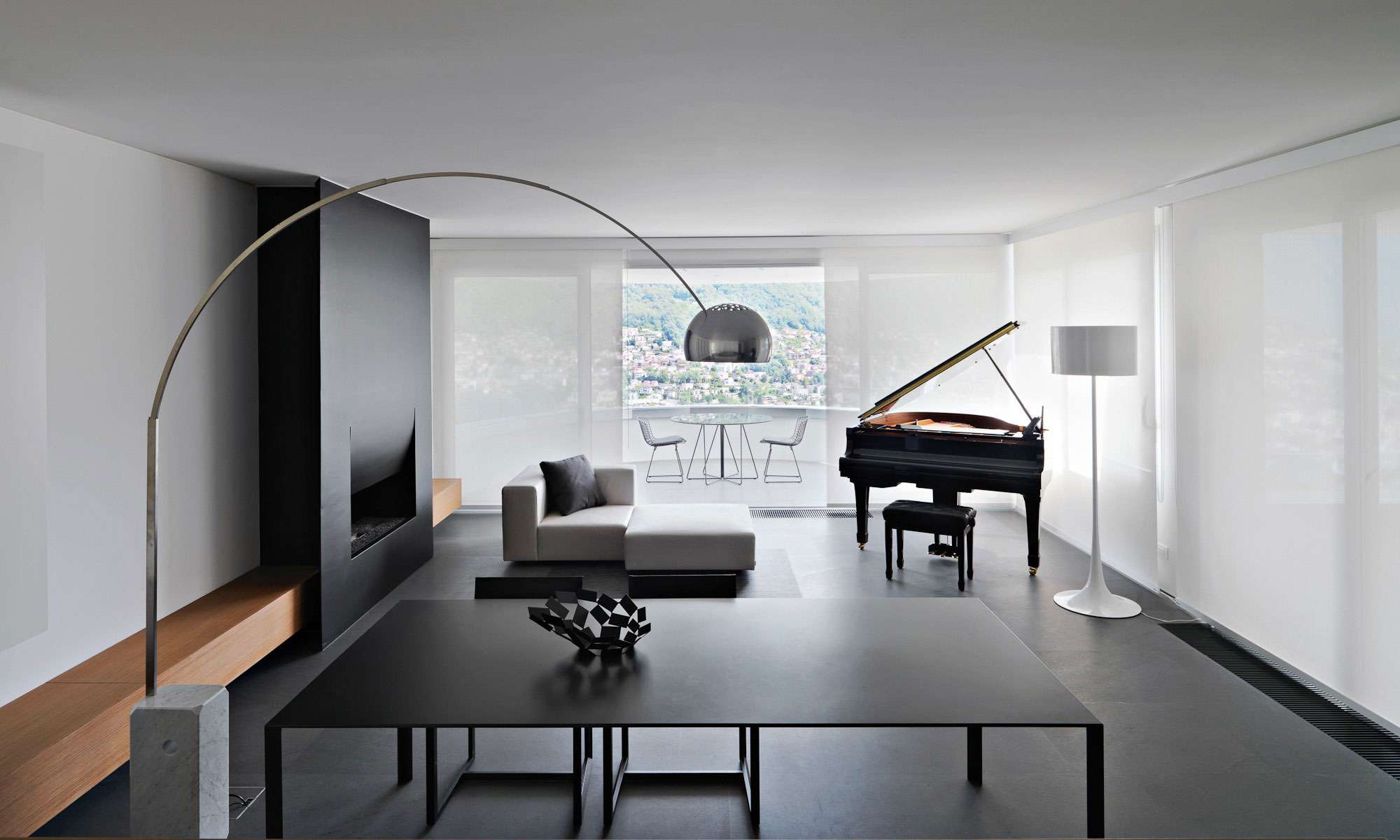
Maximalist vs Minimalist: The Best Choice for You
Now that we’ve explored the essence of both maximalism and minimalism, it’s decision time! But don’t worry, we’ve got some questions to help you figure out which style suits you best:
Do you prefer a vibrant, lively atmosphere in your living space, or do you lean toward a serene, calming ambiance?
- If you’re all about energy and excitement, maximalism might be your jam.
- If you crave peace and tranquility, minimalism could be your ideal choice.
Are you a collector at heart, with a penchant for displaying your unique finds and treasures?
- Maximalism loves collectors! It’s the perfect canvas for showcasing your beloved collections.
- Minimalism encourages you to be selective, focusing on a few cherished pieces.
Does clutter make you feel overwhelmed, or do you find comfort in a cozy, lived-in space?
- Maximalists embrace the cozy chaos of life and love a room filled with personality.
- Minimalists find solace in an uncluttered, serene environment, free from distractions.
Are you drawn to bold, eye-catching decor, or does the idea of clean lines and neutral colors appeal to you?
- Maximalists love making a statement with bold decor and striking colors.
- Minimalists find beauty in simplicity, with a preference for muted tones and understated elegance.
Do you enjoy experimenting with various styles and mixing patterns, or do you prefer a cohesive, uniform look?
- Maximalism thrives on mixing and matching styles and patterns for an eclectic look.
- Minimalism leans toward a cohesive, harmonious design with a sense of order.
Are you ready to embrace a lifestyle that aligns with your design choice?
- Maximalism invites you to celebrate abundance in all aspects of life.
- Minimalism encourages a mindful and intentional way of living.
Maximalist vs Minimalist: The Art of Balance
While maximalism and minimalism may seem contradictory, achieving balance is key in both styles. In maximalist design, balance is maintained through careful curation and placement of bold elements. In minimalism, balance is achieved by eliminating unnecessary items and focusing on functional simplicity.
Maximalist vs Minimalist: Personal Style Assessment
To determine which style suits you best, consider your personality, lifestyle, and preferences. Are you drawn to a vibrant, eclectic mix of elements, or do you crave the tranquility of a clutter-free space? Assessing your personal style will help you make an informed choice.
Maximalist vs Minimalist: Pros and Cons
Both maximalism and minimalism have their merits and drawbacks. Maximalism can feel cozy and inviting but may become overwhelming if not executed well. Minimalism offers a sense of calm and simplicity but can risk feeling sterile if taken to extremes. Consider these factors when making your decision.
Maximalist vs Minimalist: Case Studies
To inspire your choice, let’s look at two contrasting case studies. One showcases a luxurious maximalist living room filled with color and opulence, while the other highlights a serene minimalist bedroom with clean lines and a soothing color palette.
Maximalist Living Room: This room is a visual feast, featuring jewel-toned velvet sofas, a gallery wall of eclectic artwork, and an abundance of decorative pillows and throws. It’s a space that exudes warmth and personality, perfect for hosting vibrant gatherings.
Minimalist Bedroom: In stark contrast, this minimalist bedroom offers a serene retreat with a neutral color scheme, a platform bed with simple lines, and minimal decor. The emphasis is on tranquility and relaxation, creating a perfect sanctuary for rest.
Maximalist vs Minimalist: Tips for Transitioning
If you’re considering transitioning from one style to another, take it one step at a time. Start by decluttering and simplifying your space if you’re moving towards minimalism. For maximalism enthusiasts, gradually introduce bold colors and patterns into your decor.
Maximalist vs Minimalist: Embrace Your Style
In the world of interior design, whether you lean towards maximalism or minimalism, the most important thing is to embrace your style. Your home should reflect your personality and make you feel comfortable and happy. So, are you a maximalist, reveling in the abundance of life’s colors and patterns, or a minimalist, finding peace in simplicity? The choice is yours, and your home is your canvas.
FAQs
Can I combine maximalism and minimalism in one space?
Yes, you can! Mixing elements of both styles, often called “maximalist minimalism” or “maximalist chic,” can create a unique and balanced look.
Is maximalism more expensive than minimalism?
Maximalism can be more expensive due to the use of rich materials, antiques, and a larger number of decor items. However, it’s possible to achieve a maximalist look on a budget with careful shopping.
How can I make a small space feel maximalist or minimalist?
In a small space, choose one dominant style, either maximalist or minimalist, to avoid overwhelming the area. Use color, furniture, and decor strategically to achieve your desired look.
Which style is more eco-friendly, maximalism, or minimalism?
Minimalism is often considered more eco-friendly due to its emphasis on simplicity and reducing consumption. However, you can make eco-conscious choices in both styles by selecting sustainable materials and vintage or upcycled decor.
Are there any famous interior designers known for maximalist or minimalist styles?
What is a maximalist person?
A maximalist person is someone who embraces excess, abundance, and a richly decorated or cluttered style in their personal preferences, whether in fashion, decor, or lifestyle.
Are you a minimalist or maximalist?
The principles of minimalist design place a premium on clear, uncluttered areas with smooth lines and a dearth of decoration or other decorative elements. Maximalism, on the other hand, thrives on the full exhibition of a ton of colors, textures, and ornamental objects.
What is maximalist or minimalist fashion?
Maximalist fashion is characterized by bold colors, patterns, and accessorizing, often featuring multiple layers and intricate details. Minimalist fashion, in contrast, emphasizes simplicity, neutral colors, and clean lines.
What is the difference between maximalist and minimalist archeology?
In archaeology, the difference between maximalist and minimalist approaches relates to excavation methods. Maximalist archaeology involves extensive excavation to uncover a wide range of artifacts and features, while minimalist archaeology focuses on limited, selective digging to preserve the site’s integrity and minimize disturbance.

